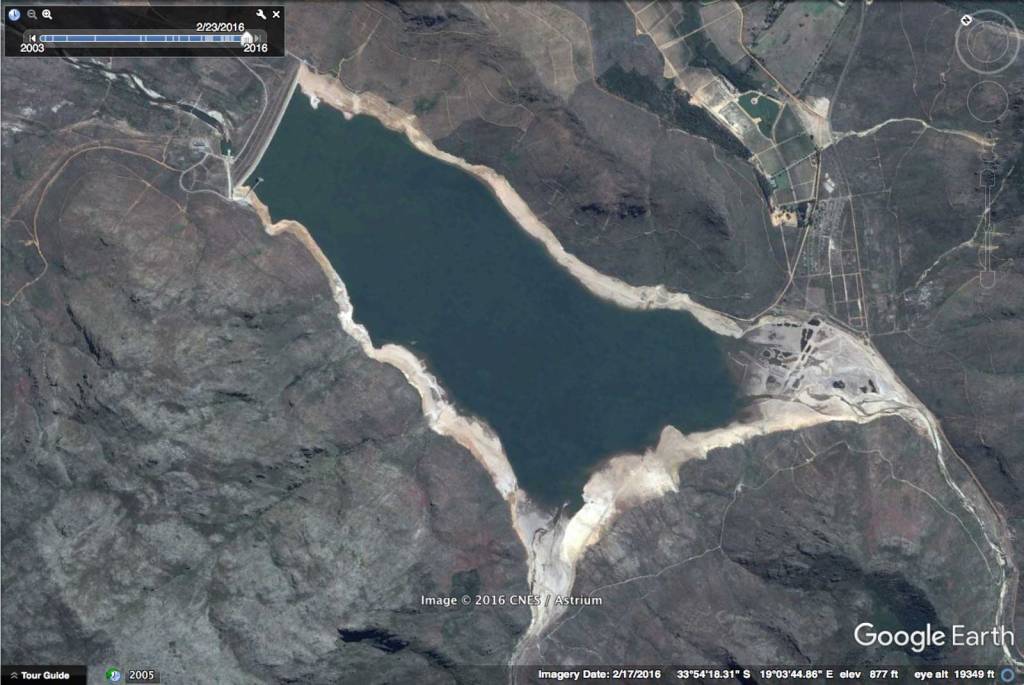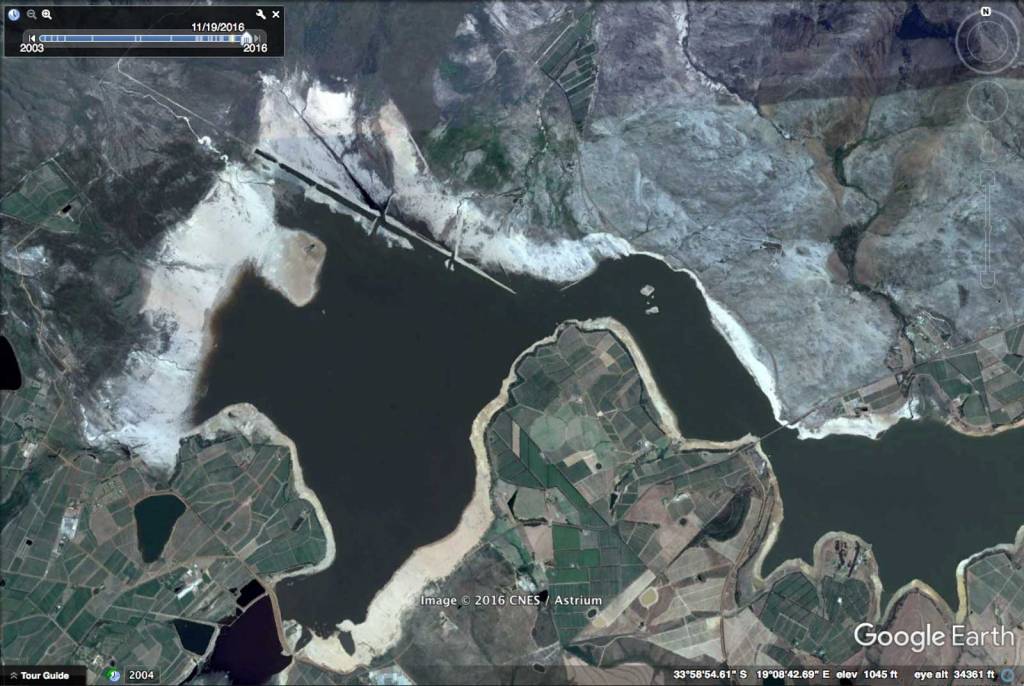World Water Day is celebrated annually on March 22nd. This year’s commemoration takes place under the global theme “Wastewater” (UNCED). For 350Africa this international observance is an opportunity to highlight current water crisis with a specific focus on Cape Town City.
The African continent continues to be vulnerable to climate change and its destructive impacts. Water insecurity remains a topical theme as water sources are running dry across the region. From frequent and recurring droughts in East Africa, leading to a devastating famine with more than 16 million people facing hunger, to tropical Cyclones such as Dineo wreaking havoc in Southern hemisphere, climate events of this nature are fast becoming a norm.
In South Africa, the coastal city of Cape Town is facing a severe climate situation. The “Mother City”, renowned for its architectural heritage, landmarks such as Robben Island and the Table Mountain National Park, is set to run out of fresh water by 2019 if resources continue to be inadequately managed.
Berg River (February 2016)

Images: Johnny Miller / Millefoto
With less than a 100 days of water supply left, the government of Western Cape has declared the city of Cape Town a disaster area for the next three months. After two years of below average rainfall, dam levels of the region’s six main dams that supply 3,7m people with water has dropped below 30%, one of the lowest levels on record. The reality is that the Western Cape is facing a water crisis that requires urgent political will to halt long- term impacts caused by climate change.
We know this goes beyond water demand exceeding supply or population growth. This crisis is rooted in long term impacts caused by industries which profit from fossil fuels. It takes an extraordinary amount of water to extract, process and dispose fossil fuel waste. Coal companies in particular waste great amounts of water and are responsible for polluting millions of litres of water beyond usability, threatening the supply of clean drinking. While we applaud Mayor Patricia De Lille for acknowledging this “real crisis” stepping up actions, implementing household water restrictions and reducing daily consumption to 751m litres, the city is still to reach it’s 700m- litre target.
Theewaterskloof (November 2016)

Images: Johnny Miller / Millefoto
The city has demonstrated its commitment to tackling climate change challenges. Being the first African city to publish a regular State of Energy Report (published in 2003, 2007, 2011 and 2015), adopting an Energy and Climate Change Strategy in 2006 and an Energy and Climate Action Plan (ECAP) in 2010. Although the city is increasingly building a more resource efficient and resilient city, it does not make sense for the city to pursue ambitious climate goals while simultaneously worsening the impacts of climate change by investing in the industry that causes climate change.
This May (5-13), during Global Divestment Mobilisation (GDM) 350Africa and Fossil Free South Africa are calling on Cape Town to become a C40 champion by standing proud with nearly 100 other cities and local governments that have committed to divest from fossil fuels. GDM aims to enact people power to further stigmatise the fossil fuel industry which is perpetuating the climate crisis. We are escalating the call for the city of Cape Town to divest from fossil fuel industries.
World Water Day presents an opportunity for us to take heed of this moment, strengthen people’s power in pressuring our governments to take bold action and confront the water climate crisis. Investing in fossil fuel institutions is a direct investment in climate impacts. We are building on the immense power the global fossil fuel divestment movement has built. The urgency could not be more heightened: climate change continues to unjustly impact the most vulnerable people worldwide.
This May we’re calling on your leadership. Join the movement, register your action or take part in a mobilisation near you!
Global Divestment Mobilisation
Sources
